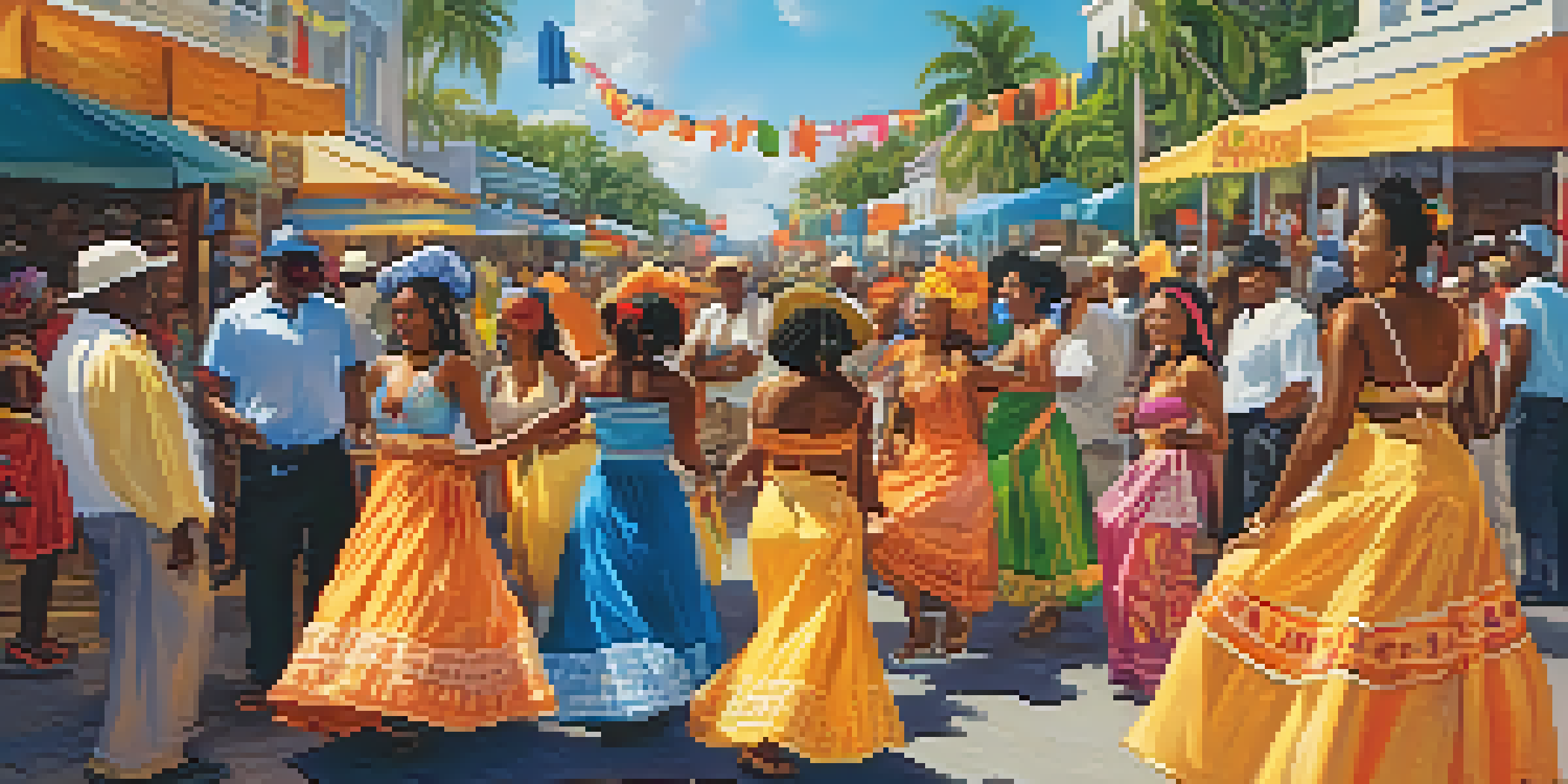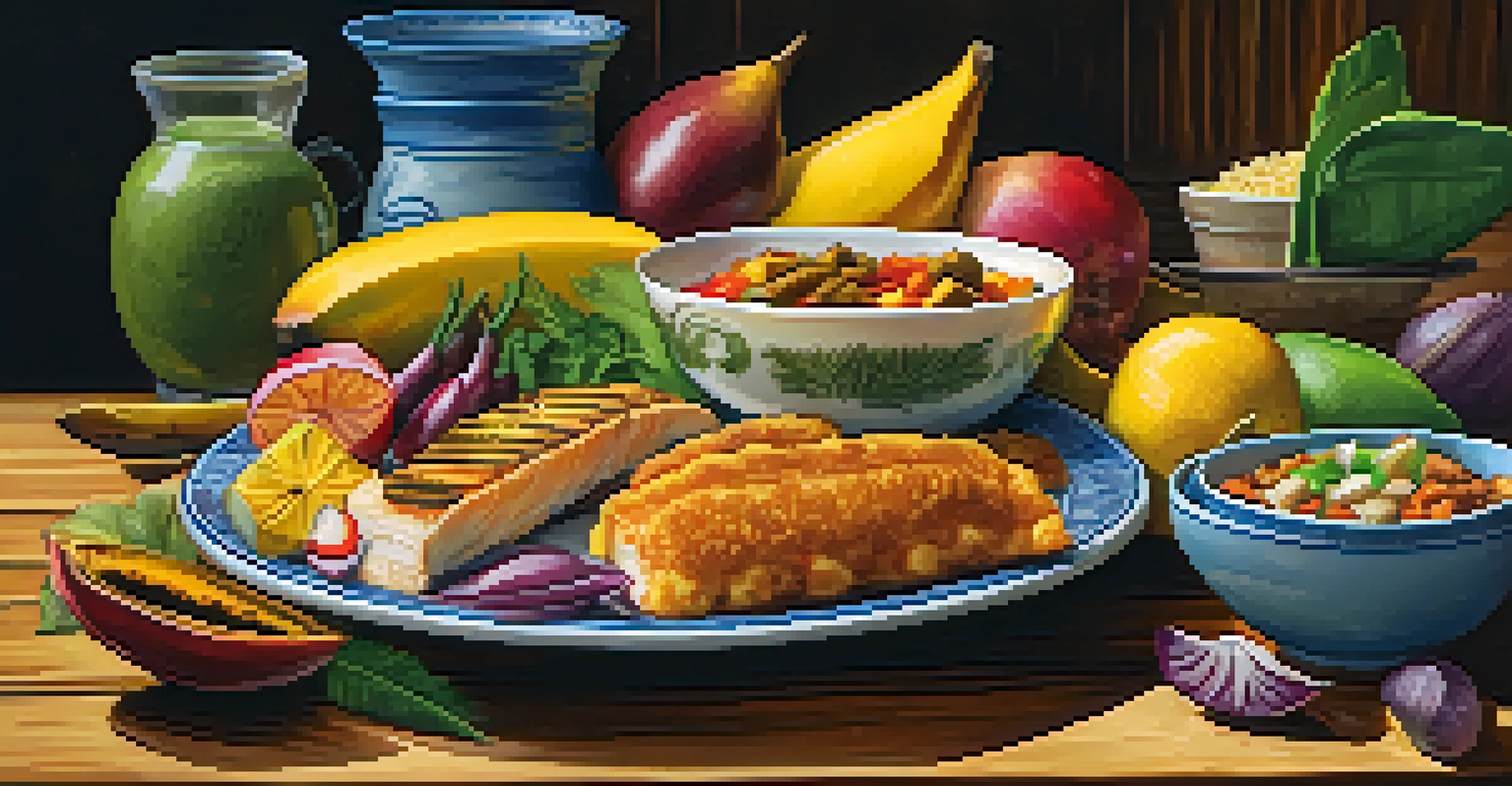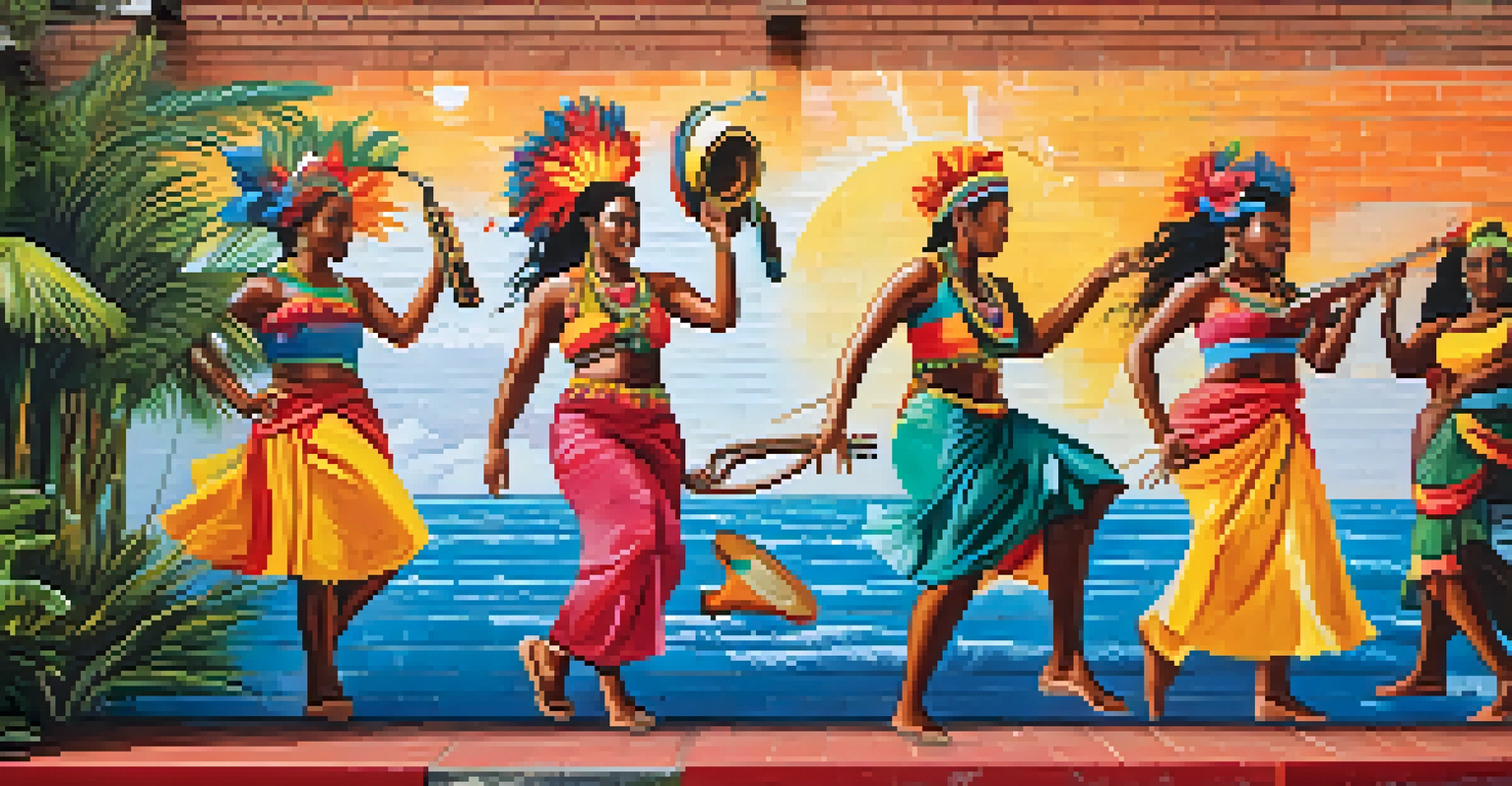The Impact of Caribbean Culture on Florida's Identity

The Roots of Caribbean Culture in Florida
Florida's connection to Caribbean culture dates back centuries, with waves of immigration shaping the state's diverse identity. Many Caribbean nations, such as Cuba, Jamaica, and Haiti, have established vibrant communities in Florida. These communities brought with them unique customs, languages, and traditions that have become integral to the state's cultural fabric.
Culture is the widening of the mind and of the spirit.
The proximity of Florida to the Caribbean makes it a natural hub for cultural exchange. This geographic closeness has facilitated not just migration, but also the blending of traditions and ideas. Over time, Florida has evolved into a melting pot where Caribbean influences can be felt in various aspects of daily life.
From music and dance to food and festivals, the infusion of Caribbean culture into Florida has created a rich tapestry of experiences. This cultural blend not only reflects the history of the state but also enriches its identity, making it a unique destination for residents and tourists alike.
The Vibrancy of Caribbean Festivals in Florida
One of the most exciting aspects of Caribbean culture in Florida is the array of festivals celebrated throughout the year. Events like Miami Carnival and the Orlando Caribbean Carnival showcase the colorful heritage of the islands. These festivals bring communities together, allowing participants to celebrate their roots and share their culture with others.

During these festivities, the streets come alive with the sounds of calypso and reggae, while the air is filled with the enticing aromas of Caribbean cuisine. From jerk chicken to roti, these culinary delights offer a taste of the islands, inviting everyone to partake in the experience. This celebration fosters a sense of belonging and pride among Caribbean-Americans.
Caribbean Influence Shapes Florida's Culture
Florida's rich cultural identity is significantly shaped by Caribbean communities, which bring unique customs, languages, and traditions.
Moreover, these festivals attract thousands of visitors, highlighting Florida as a vibrant cultural hub. They not only promote local businesses but also enhance tourism, showcasing the rich diversity that Florida has to offer. This cultural exchange allows for greater understanding and appreciation of Caribbean traditions within the broader Floridian identity.
Culinary Influences: Flavors of the Caribbean
Caribbean cuisine has made a significant mark on Florida's culinary landscape, bringing bold flavors and diverse dishes to the forefront. Seafood, spices, and tropical fruits dominate many menus, reflecting the region's rich agricultural bounty. Restaurants across Florida serve everything from Cuban sandwiches to Haitian griot, giving diners a taste of the Caribbean.
Food is our common ground, a universal experience.
Food is a powerful way to bring people together, and in Florida, Caribbean cuisine often serves as a bridge between cultures. Shared meals foster community bonds, and many Floridians have embraced Caribbean dishes as part of their own culinary repertoire. This fusion of flavors exemplifies how food can influence and shape cultural identity.
Moreover, food festivals and markets celebrate this culinary diversity, allowing locals and visitors to explore Caribbean flavors. These events not only highlight the importance of food in cultural expression but also promote local chefs and culinary artisans. The impact of Caribbean cuisine resonates throughout Florida, showcasing the state's rich, multicultural identity.
Musical Rhythms: The Soundtrack of Florida
Music is another vital element of Caribbean culture that has profoundly influenced Florida's identity. Genres like reggae, salsa, and soca have found a home in the state, with local artists often blending these styles with pop and hip-hop. This musical fusion creates a vibrant soundscape that is uniquely Floridian, reflecting the diverse backgrounds of its residents.
Live music events, clubs, and festivals showcase this eclectic musical scene, drawing in crowds that appreciate the rhythm and energy of Caribbean beats. Florida's music venues often feature Caribbean artists, providing a platform for cultural exchange and celebration. This dynamic atmosphere fosters connections among communities and invites everyone to join in the celebration.
Festivals Celebrate Caribbean Heritage
Vibrant Caribbean festivals in Florida, like Miami Carnival, foster community pride and attract visitors, showcasing the state's cultural diversity.
Through music, the stories and experiences of Caribbean culture are shared, enriching Florida's cultural narrative. Whether it's a lively street party or an intimate concert, the influence of Caribbean rhythms is felt throughout the state, making it an integral part of Florida's identity.
Art and Literature: Caribbean Voices in Florida
Caribbean artists and writers have made significant contributions to Florida's cultural landscape, enriching its artistic expression. Visual arts, literature, and performance are essential mediums through which Caribbean stories are told. From vibrant murals to poignant poetry, these works reflect the complexities of identity and experience within the Caribbean diaspora.
Art exhibits and literary festivals often showcase the talents of Caribbean artists, creating opportunities for dialogue and understanding. These events celebrate Caribbean heritage while also inviting Floridians from various backgrounds to engage with the art. This cross-cultural interaction fosters a greater appreciation for the richness of Caribbean culture within Florida's broader narrative.
Moreover, the themes explored in Caribbean literature resonate with many Floridians, as they often touch on shared experiences of migration, identity, and community. By amplifying these voices, Florida continues to cultivate a diverse and inclusive cultural identity that honors its Caribbean roots.
Language and Dialects: The Caribbean Influence
Language plays a significant role in shaping cultural identity, and in Florida, the influence of Caribbean dialects is evident. English, Spanish, and Creole are just a few of the languages spoken among Floridians, reflecting the diverse backgrounds of its residents. This linguistic diversity enriches everyday conversations, creating a vibrant tapestry of communication.
The presence of Caribbean dialects has also led to the blending of languages, resulting in unique expressions and phrases that are commonly used in Florida. Local slang often incorporates Caribbean terms, demonstrating the fluidity of language and its ability to evolve. This linguistic fusion showcases the interconnectedness of cultures within the state.
Culinary Diversity Reflects Cultural Fusion
Caribbean cuisine has become an integral part of Florida's culinary landscape, uniting people through shared meals and vibrant flavors.
Furthermore, schools and community centers often offer language programs that celebrate this linguistic diversity. By promoting multilingualism, Florida embraces its cultural heritage while fostering inclusivity and understanding. Language, as a vehicle for cultural expression, continues to shape Florida's identity in profound ways.
The Role of Community in Preserving Culture
Community organizations play a crucial role in preserving and promoting Caribbean culture within Florida. These groups often host events, workshops, and educational programs that celebrate Caribbean heritage and traditions. By engaging the younger generation, they ensure that cultural practices are passed down, keeping the spirit of Caribbean culture alive.
Additionally, these organizations provide support and resources for Caribbean immigrants, helping them navigate life in Florida while maintaining their cultural identity. Through mentorship and community-building activities, they create a sense of belonging that is vital for many individuals. This support system fosters resilience and pride among Caribbean-Americans.

As these communities continue to thrive, their influence on Florida's broader identity becomes more pronounced. The ongoing celebration of Caribbean culture strengthens the state's multicultural narrative, making it a dynamic and inclusive place to live. Ultimately, the role of community in preserving culture is essential for fostering understanding and appreciation across diverse backgrounds.